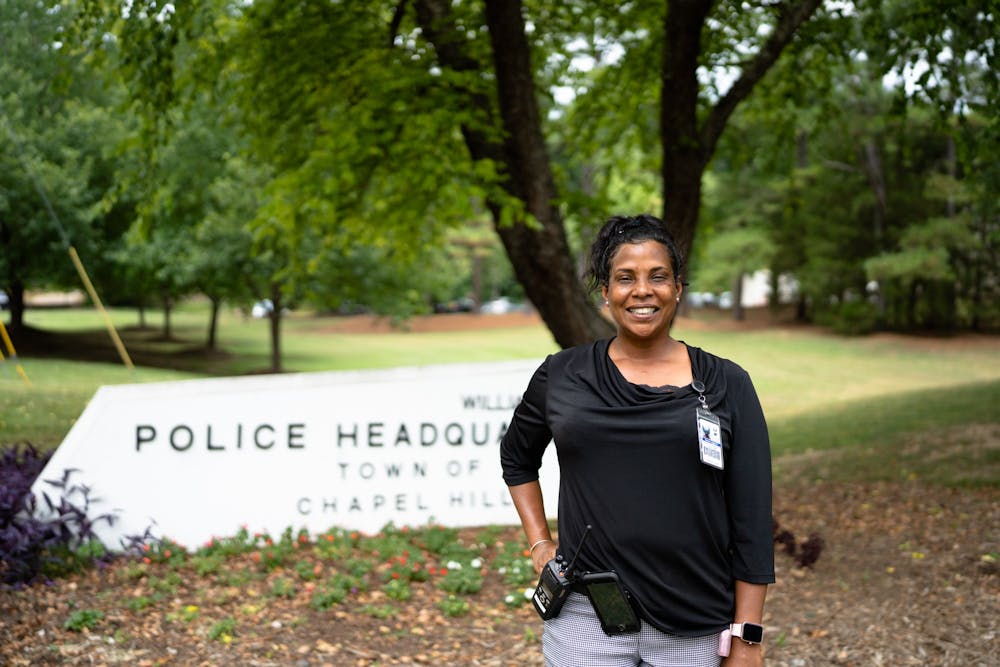Since then, the unit has evolved to adopt the co-response model and provide human services for victims of domestic abuse, people with persistent mental or behavioral health issues and unsheltered people – among many more.
Burton works mainly with unsheltered people and often meets them in the street to provide them with support and resources.
On average, those experiencing homelessness in Orange County spend nearly two years without permanent shelter, and 11 percent of those who obtain housing return to homelessness within two years, according to data from the Orange County Partnership to End Homelessness.
Burton said her position in the crisis unit and personal experience helps people to see their potential, even when they may not have any hope left.
“I want to make an impact on people's lives by being a living example, that you can recover from being unsheltered, having a mental health diagnosis or substance abuse disorder,” she said. “It all starts with a small amount of hope.”
Edwin Fisher, a professor in UNC’s Department of Health Behavior, is the global director of the Peers for Progress organization, which connects people around the world with researchers and peer supporters.
One of the organization’s programs is the Peer Support Core at UNC, which was founded in 2020 and aims to connect students and faculty with peers on campus for support with their mental health.
Fisher said UNC’s peer support collaborative has been successful thus far and has been able to combat some of the stress the campus community feels.
“It's not proving that I don't need anything from anybody else,” he said. “It's recognizing that you may be helping me today, and I may be helping you tomorrow. And that way, we all do better.”
Research has shown that peer support has helped quell postpartum depression in mothers, bring people out of patterns of drug use and improve mental well-being of college students.
Fisher said the peer support system works well as long as the peer supporter has some important connection with the person in need of support and follows up with that person.
He said that the CHPD's crisis team adding a peer support specialist may help with the long-term goals of the unit and its patients.
To get the day's news and headlines in your inbox each morning, sign up for our email newsletters.
“My doctor tells me that I've got to lose 20 pounds, and I say, ‘Yeah, I really do,’” he said. “For the next three days, I’m really doing very well, and then things start to fall apart a little, and I don't see my doctor again for six months. The peer supporter can follow up and help me stay with things.”
Burton said that sometimes the people she follows up with regularly wait for her on the street.
While Burton is the unit’s only peer support specialist at this time, Hyler said she hopes CHPD will be able to add more specialists in the future. She said seeing Burton work and connect with the community has been special to witness.
“I've gone out with Laverne multiple times just downtown, especially on Franklin Street,” Hyler said. “There is a group of people that wait for her to come see them every day. It's really powerful."
@sarahchxi @ethanehorton1
@DTHCityState | city@dailytarheel.com
Ethan E. HortonEthan E. Horton is the 2023-24 city & state editor at The Daily Tar Heel. He has previously served as a city & state assistant editor and as the 2023 summer managing editor. Ethan is a senior pursuing a double major in journalism and media and political science, with a minor in history.



